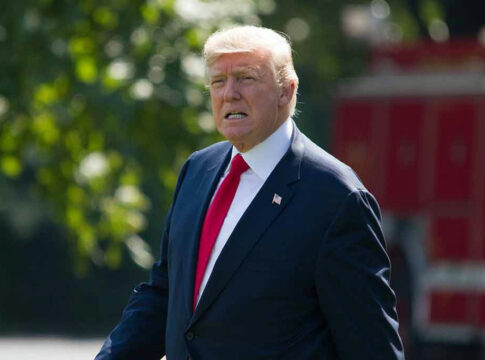The Washington Post warns that Democrats have fallen into a political trap set by President Trump, potentially threatening their strategic positioning.
Trump’s Provocation Strategy
President Donald Trump has long been known for his ability to provoke reactions from opponents, a tactic he has perfected over years of public service and media engagement. This approach often puts Democrats on the defensive, forcing them to respond to his often controversial statements or policies. In doing so, Trump effectively controls the narrative, drawing attention to his agenda while spotlighting perceived weaknesses in his opponents. The Washington Post’s recent opinion piece suggests that Democrats have once again underestimated Trump’s strategic cunning, potentially walking into a trap that could undermine their political objectives.
The Washington Post’s analysis is not just about Trump’s provocative actions, but also the media’s role in amplifying these disputes. By focusing on Trump’s statements and actions, media outlets inadvertently help him dominate news cycles, keeping him in the public eye. This strategy has been a hallmark of Trump’s political career, where he uses media attention to reinforce his image as a political outsider challenging the status quo. As Democrats react to these provocations, they risk being seen as solely reactive rather than proactive, a perception that can be politically damaging.
Potential Impacts on Democratic Strategy
Democrats face a significant challenge in countering Trump’s tactics without falling into the traps he sets. The Washington Post’s warning serves as a sobering reminder of the strategic pitfalls of engaging with Trump on his terms. If Democrats continue to be reactive rather than setting their own agenda, they risk losing the narrative battle, which could have implications for voter perception and electoral outcomes. With midterm elections approaching, it is crucial for Democratic leaders to reassess their strategies and focus on issues that resonate with the electorate, rather than being drawn into Trump’s divisive rhetoric.
Moreover, the broader political landscape is fraught with challenges, including economic concerns and social polarization. As Trump capitalizes on these issues, Democrats must navigate public discontent over past policies and fiscal mismanagement. Their ability to present a unified and coherent alternative will be critical in swaying voters who feel alienated by current political dynamics.
Media’s Role in Political Discourse
The media’s role in shaping political discourse cannot be overstated. Outlets like The Washington Post play a crucial role in analyzing and interpreting political strategies, offering insights into the implications of current events. However, there is a fine line between analysis and amplification. By focusing extensively on Trump’s tactics, media outlets may inadvertently reinforce his influence, complicating efforts to shift the narrative. For Democrats, understanding this dynamic is essential in crafting a strategy that not only counters Trump’s provocations but also resonates with a broader audience.
Ultimately, the ongoing political chess game between Trump and the Democrats is a testament to the complexities of modern political strategy. As both sides vie for public support, the stakes are high, with implications that extend beyond individual elections to the broader health of American democracy. In this context, understanding and anticipating the moves of one’s opponents is not just strategic but essential for political survival.
Sources:
The Washington Post – For political analysis and news coverage.
Pew Research Center – For insights into public opinion and political trends.
Journal of Politics – For in-depth analysis.
FactCheck.org – For verifying the accuracy of political claims.

